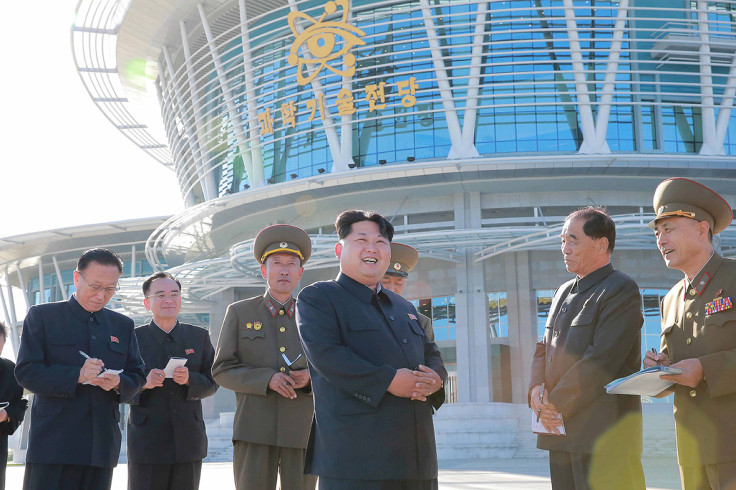North Korea: UN official says Kim Jong-un's regime profiting from 'forced labour' overseas

A UN investigator has said that more than 50,000 North Koreans have been sent abroad to work in conditions resembling "forced labour" camps. The special rapporteur on human rights in North Korea, Marzuki Darusman, said the workers were underfed, paid between $120-$150 per month and were sometimes forced to work up to 20 hours a day. At the same time, employers were paying significantly higher amounts from the workers' pay to the North Korean government.
It is said that North Korean workers are earning $1.2bn-$2.3bn (£790m-£1.5bn) annually for the country, which is facing a "really tight financial and economic situation". The country is experiencing a severe shortage of foreign currency following international sanctions since 2006 for testing nuclear weapons.
Darusman also accused North Korea of violating an agreement on banning forced labour. In his report, Darusman said the majority of the North Korean workers were in China and Russia, engaged in the logging, mining, textile and construction sectors. The report added that the number of North Koreans working abroad was on the rise.
The jobs assigned to the workers were based according to their state-assigned social class, an ex-worker is cited as saying. The most dangerous and tedious of jobs were delegated to the lower class. Besides, they were under surveillance in order to ensure compliance with the government's rules and regulations.
Executions and torture
In his report, Darusman said executions, arbitrary detentions, torture and massive ill-treatment were ongoing in political prison camps and discrimination based on social class was a norm. "The near total denial of human rights in the country revolves around ... instilling fear within the minds and hearts of the population," Darusman was quoted as saying by the Associated Press.
He said for justice to prevail, the UN Security Council must refer all North Koreans responsible for denying human rights to the International Criminal Court. However, the move may not get the Security Council approval as permanent members China or Russia will most likely veto it.
In this dismal scenario there is also a positive. The economic hardships faced by North Koreans have made them fend for themselves. "We are hearing credible reports about small businesses being established, small plots, gardening and farming activities, the beginnings of a property market, the widespread use of mobile phones, the illegal imports of South Korean pop music and videos and a host of other issues that gives an image that incremental changes are taking place in the North," Darusman said.
© Copyright IBTimes 2025. All rights reserved.





















